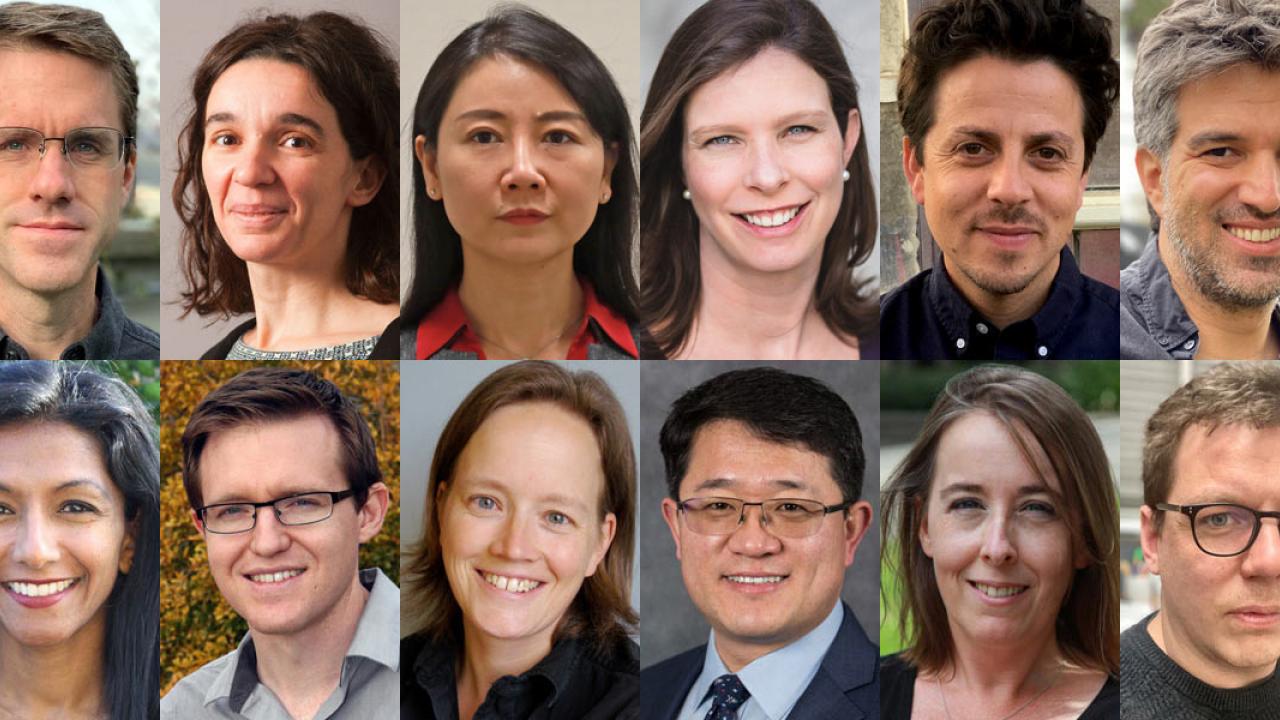UC Davis has named its new class of Chancellor’s Fellows, marking the 20th anniversary of the program that provides philanthropic support to exceptional early career faculty members.
‘UNRESTRICTED THINKING’
The fellowships come with cash awards — $25,000 this year — for research or other scholarly work.
“It’s unrestricted, so it allows you to do research that you’ve been thinking about doing that you couldn’t get funding for,” said Aldrin Gomes, associate professor of neurobiology, physiology and behavior, a 2017 Chancellor’s Fellow — and, who, like all Chancellor’s Fellows, keeps the title for five years.
“It allows you to be yourself and really incorporate undergrads and graduate students in a project, which allows them also to shine.”
Gomes is among Chancellor's Fellows from previous years who appear in a video celebrating the program’s 20th anniversary. See box for video link.
Here are our 2019-20 fellows, all of them associate professors, listed with their department or school in parentheses: Christopher Barker (veterinary medicine), Eleonora Grandi (medicine), Jane Gu (electrical and computer engineering), Erin Hamilton (sociology), Maceo Montoya (Chicana and Chicano studies), Santiago Ramirez (evolution and ecology), Shalini Satkunanandan (political science), Christopher Simmons (food science and technology), Anne Todgham (animal science), Aijun Wang (medicine), Megan Welsh (education) and Nicolas Zwyns (anthropology).
“When you look at our new fellows’ accomplishments to date, you can’t help but be impressed,” Chancellor Gary S. May said. “Their department chairs see it, their deans see it, their peers see it — and all of us know more great work lies ahead.”
Shaun Keister, vice chancellor of Development and Alumni Relations, joined the chancellor in also recognizing the donors who have funded two decades of cash awards to 154 Chancellor’s Fellows, through the UC Davis Annual Fund, Davis Chancellor’s Club and UC Davis Parents Fund. See all giving opportunities.
“We are thankful for support like this that allows us to be the top research university we are,” Keister said.
More about the 2019-20 Chancellor’s Fellows (click anywhere in each box, to see the fellow's lab or faculty page):
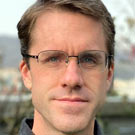
Christopher Barker
Department of Pathology, Microbiology and Immunology, School of Veterinary Medicine
A leader in the area of vectorborne disease modeling, Barker is on the forefront of efforts to understand the biology of mosquitoes that are the primary vectors for Zika, dengue and chikungunya viruses. He also continues to advance our understanding of the biology of west Nile virus transmission and control measures. He was instrumental in developing the California Vectorborne Disease Surveillance Gateway, which is being modeled and implemented in other states and internationally.
“Dr. Barker has clearly established himself, both nationally and internationally, as a leader and scholar in arboviral epidemiology and disease transmission surveillance.” — John Pascoe, executive associate dean, School of Veterinary Medicine
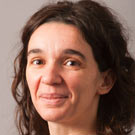
Eleonora Grandi
Department of Pharmacology, School of Medicine
Recently named a fellow of the Heart Rhythm Society, Grandi is recognized for her groundbreaking contributions to the understanding of fundamental mechanisms of heart rhythm disorders — with her main discoveries related to computational modeling of cardiac arrhythmia. She also uses modeling and simulation to understand the quantitative aspects of regulation of cardiac electrophysiology in health and disease.
“Dr. Grandi has made pivotal and enduring contributions to all mission areas at UC Davis. She is a committed teacher and a generous contributor to the mission of the department, school, campus and scientific community.” — Angela Haczku, associate dean, Translational Research, School of Medicine
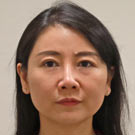
Jane Gu
Department of Electrical and Computer Engineering, College of Engineering
Her research group develops millimeter wave and terahertz frequency systems that allow chips to talk to one another with unprecedented speed and bandwidth. These rapid connections can bring benefits in communications, medical and health applications, virtual and augmented reality and many other fields. Her strong preparation and background in industry continued with high momentum into her academic career at UC Davis, producing prolific research results.
“She has grown to be a superstar in this space,” earning several federal grants and establishing collaborations with industry. — Saif Islam, chair, Department of Electrical and Computer Engineering
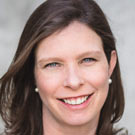
Erin Hamilton
Department of Sociology, College of Letters and Science
She studies when, why and how people migrate — and what the consequences are for migrants, their families, and the communities they leave and enter. The co-author of Population Health in America, she is currently working on two areas of research: the well-being of young adult immigrants in California, funded by the National Science Foundation, and child and family migration between Mexico and the U.S., funded by the National Institute of Child Health and Human Development and UC MEXUS.
“The type of research conducted by Erin is extremely policy relevant, and … at the boundary between demography, economics, sociology and health care.’ — Giovanni Peri, professor, Department of Economics, and founding director, Center for the Study of 21st-Century Global Migration
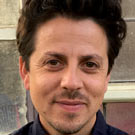
Maceo Montoya
Department of Chicana and Chicano Studies, College of Letters and Science
Scholar, writer, artist — Montoya brings together his skills in all these areas for his research and teaching. He is author of three books of fiction — The Scoundrel and the Optimist, The Deportation of Wopper Barraza, and You Must Fight Them: A Novella and Stories — and two nonfiction books, including Chicano Movement for Beginners, which he also illustrated. Montoya’s artwork has been exhibited around the world and he has led several mural projects throughout the region.
“Professor Montoya has consistently taught a set of courses that engages his range of expertise, from the small, practice-based mural workshop to the Chicano novel to the ever-growing introduction to Chicana/o culture.” — Elizabeth Spiller, dean, College of Letters and Science
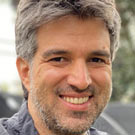
Santiago Ramirez
Department of Evolution and Ecology, College of Biological Sciences
A world expert on orchid bees, Ramirez draws from a diverse blend of knowledge to better understand the evolution and ecology of bees. He combines natural history, fieldwork and behavior with cutting-edge genomics and chemical analysis to uncover the interplay among bees, orchids and their perfume compounds. This work highlights how plants and bees can coevolve, with strong implications for issues of biodiversity.
“His activities epitomize the ideal performance of an early career faculty member.” — Mark Winey, dean, College of Biological Sciences
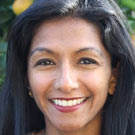
Shalini Satkunanandan
Department of Political Science, College of Letters and Science
As a political theorist, Satkunanandan is gaining a reputation for her new insights into the writings of major thinkers — Nietzsche, Heidegger, Plato, Kant and Weber — and her contributions to contemporary debates about the place of morality in politics. Other scholars in the field describe her work — including the award-winning book Extraordinary Responsibility: Politics Behind the Moral Calculus — as original, “very first rank” and “nothing less than brilliant.”
“She has a unique and powerful voice as a political theorist, and all the more remarkably so for someone at her early career stage.” — Elizabeth Spiller, dean, College of Letters and Science
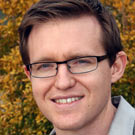
Christopher Simmons
Department of Food Science and Technology, College of Agricultural and Environmental Sciences
He has helped the agriculture and food processing industries save water, energy and money by identifying resource efficiency and waste recycling strategies. He also has advanced biosolarization as a sustainable alternative to soil pesticides. He is a devoted classroom instructor possessing a clear vision of the concepts he needs to convey to his students and delivers such concepts using 21st-century teaching approaches, including development of visual reality modules.
“His rapid development and subsequent significant expansion of his research devoted to improving sustainability of food systems has put him at the forefront of this competitive field.” — Helene Dillard, dean, College of Agricultural and Environmental Sciences
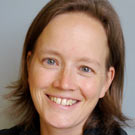
Anne Todgham
Department of Animal Science, College of Agricultural and Environmental Sciences
An environmental stress physiologist focused on aquatic species, Todgham researches the vulnerability of Antarctic fishes to climate change, how organisms respond to multiple stressors and the role of environmental change on stress tolerance. She is one of the few people conducting research in early life stages of Antarctic fishes and also conducts research in species important to California, both for conservation of native species and for aquaculture.
“Dr. Todgham has been an engaged and influential citizen of our university. … Clearly, her academic career is on a steep upward trajectory that can only be judged as superlative, particularly for one so early in her career.” — Helene Dillard, dean, College of Agricultural and Environmental Sciences
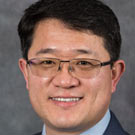
Aijun Wang
Department of Biomedical Engineering, College of Engineering; and Department of Surgery, School of Medicine
His research focuses on developing innovative tools, technologies and therapeutics that combine molecular, cellular, tissue and biomaterial engineering to promote tissue regeneration and restore function. One of his lab’s main efforts has focused on isolating stem cells from human placental tissue, then using those stem cells to treat birth defects such as spina bifida and hemophilia. In addition to published papers, he functions as an influential advocate for academic entrepreneurship.
“Dr. Wang is an extremely talented young scientist who has demonstrated that his academic productivity is rigorous and innovative. ... His many publications, patents, conference invitations, and awards are a testament to his success as a leader in his field.” — Ted Wun, associate dean for research, School of Medicine
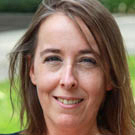
Megan Welsh
School of Education
Her scholarship transcends historically entrenched disciplinary and methodological lines to address how educators use assessment data — especially whether they make valid test score inferences and how tests may be used to foster advances in national educational policy. In addition to her impactful research, her exceptional commitment to teaching and mentorship earned her the 2019 Award for Excellence in Service to Graduate Students from the UC Davis Graduate Student Association.
“In order to be a truly great education researcher, one must be both a great scientist and absolutely invested in advancing the well-being of children. Dr. Welsh is dedicated to research on measurement that advances equity in education for all children and students.” — Peter Mundy, professor and associate dean for academic personnel and research, School of Education
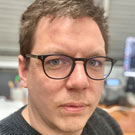
Nicolas Zwyns
Department of Anthropology, College of Letters and Science
This archaeologist’s work focuses on the “northern route” taken by early modern humans as they started to migrate from Africa into the rest of the world. As evidence of his growing international reputation, he provided the archaeological context for a complete genome sequence extracted from 45,000-year-old modern human skeletal remains from western Siberia, a study that was published in Nature.
“His research stands out because of his ability to move seamlessly between detailed analyses of stone tools and ‘big picture’ models that integrate archaeological, genetic and fossil evidence.” — Elizabeth Spiller, dean, College of Letters and Science
Media Resources
Dateline Staff, 530-752-6556, dateline@ucdavis.edu
